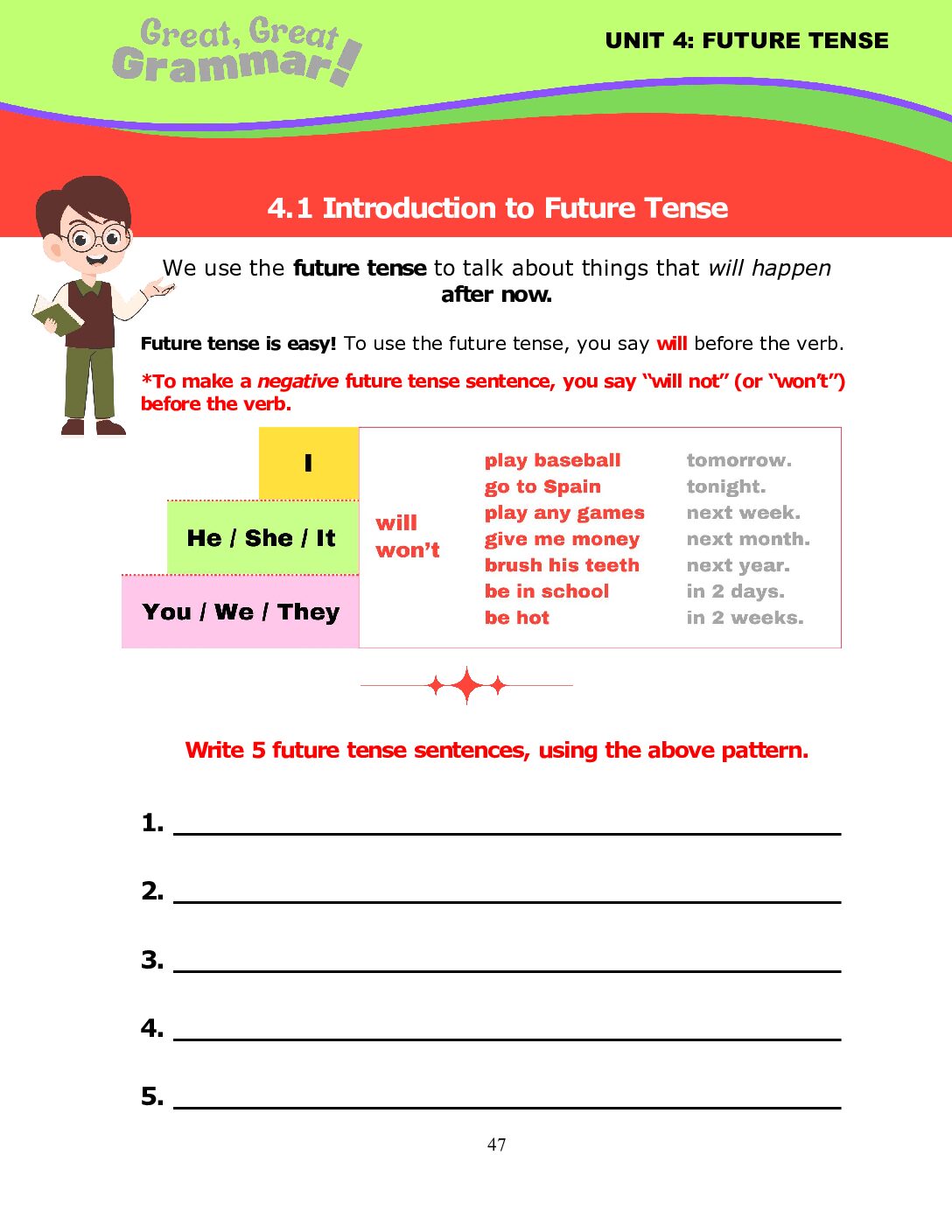This ESL grammar lesson introduces students to the future tense and lets them practice using “will” or “won’t” to talk about things that will/won’t happen in the future.
Understanding how to use the future tense is essential for effective communication in English. Our beginner-level lesson on the future tense with “will” and “won’t” is designed to help ESL students grasp this crucial concept easily and effectively.
ESL Grammar: Forming the Future Tense with “Will”
To talk about future events or actions, we use “will” followed by the base form of the verb. Here are some examples:
- I will go to the store tomorrow.
- She will finish her homework later.
- They will travel to Japan next year.
ESL Grammar: Using “Won’t” for Negative Sentences
To express that something will not happen, we use “won’t,” which is the contraction of “will not.” Here are some examples:
- He won’t come to the party.
- We won’t be late for the meeting.
- I won’t forget your birthday.
The English grammar lesson below introduces the future tense and sentence patterns with “will” and “won’t” in a clear and simple manner that is easy for beginner English learners to understand. Our series of ESL grammar lessons on subjects and verbs introduce these concepts and reinforce them through helpful and instructive exercises.
This lesson is available for free download, and you can download many more English grammar lessons focusing on basic English tenses (present tense, present continuous tense, past tense, future tense) in our comprehensive, beginner-level ESL grammar textbook Great, Great Grammar! (Book 2: Tenses).


